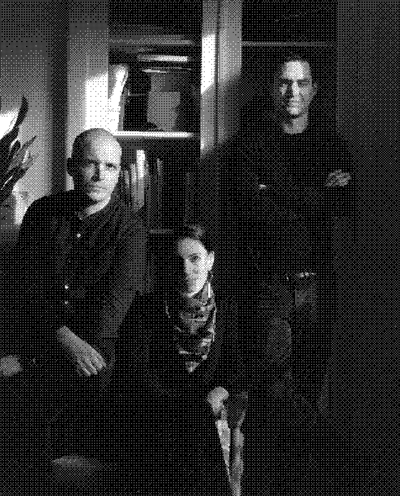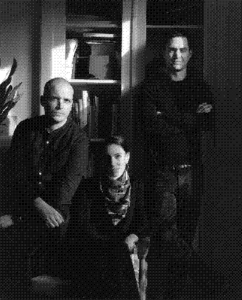References Development Strategy Advice Management Prospective Creativity Clients Communication Process Prospection Work culture Competition Presentation Design Typography Agents Advertising Ai Finance Architecture Investment Education Cgi Trend Fashion Recruitment Graphic design Nft Music Marketing Photography Sound design Research Blockchain Sustainability Crypto Technology Metaverse
12 excerpts on the topic “Finance”
[…] Independence has always been a core value for us. The whole reason we started the studio was for freedom, and real freedom means independence. Once you join a larger group, you’re no longer truly independent, you have to report numbers, follow strategic decisions, and meet investor expectations. No one gives you money just for fun; investors want a return. Luckily, we’re in a position where we don’t need that. […]
[…] From a financial perspective on running a studio, you should be compensated fairly—not just for your time, but for your mind. If you’re paid by the hour, it fails to account for the research and experience you’ve compounded over the years. You’re compensated for the time you spend in the present moment, but not for the investments you’ve made earlier. […]
[…] We like being independent. Setting an end date goes against capitalist logic—it rejects the pursuit of long-term value accumulation through reputation, a portfolio, or client networks, knowing that by 2030, all of it will dissolve. This mindset reinforces Modem’s autonomy. It exists as a project in its own right, deliberately faceless. The focus is on the work, not the people behind it. […]
[…] We don’t have any investors. Honestly, when it comes to money today, you can find it. I’ve been lucky. There are a lot of people who’ve approached me to invest. I’ve always refused. As an architect, I work with a lot of property dealers. These are people who could lend us money because we worked hard, and they saw how serious we were. But the idea is to launch a brand for two years and work with retailers we have targeted, who’ve already contacted me, whom I know well but with whom I couldn’t collaborate before because we were working with galleries. […]
[…] Yeah, we’re going to create some stock, and the idea is to wait and see… And for the next two years, we’ll go through retailers. After two years, we will take over directly through our site, and then it will be structured differently. But the first way of structuring, during the first two years, will be to go to our retailers and say, “Here, what do you think of our collection?” What would you be ready to invest in?” We’re asking straight up for, like, 30,000 bucks, you know? For 30,000 bucks, you get three pieces of each. We have eight pieces, so you get pretty much the whole collection. […]
[…] my brother showed me a guy who talked about second and third sources of income. That’s an extremely interesting subject. For example, I sell design, but how do I get a second and third source of income from my main business? When you manage to do this, it’s of great interest to the studio or workshop. I never wanted to be caught with one client or one subject. I find that too dangerous. […]
[…] We have to eat. So we have to stop with the delusions. I hate studios that say “Oh no, no, we’re going to do the best door handle in the world; otherwise, we won’t work.” But who’s going to pay your rent? My parents wouldn’t give me money for my rent. And my collection, I was the one who paid for it. I mean, everything you see today is self-financed. There’s no money from mum and dad. But how? Because we work, we have like 20 architecture projects throughout the year. And you don’t know that. […]
[…] The beginning is the moment in which you need to pursue your ideal scenario as much as possible with the means that you have. We come from very simple families (…) We obtained what we wanted without really having a lot of money in our hands. So, it’s not about money, especially at the beginning, because you don’t have money regardless, so don’t compromise. […]
[…] Invoicing: I didn’t charge enough. We undervalued ourselves enormously. […]
[…] FH
Another big thing is maintenance. Constantly improving the licensing system and extending the website. With our amazing development partners from Humans & Machines we constantly work on updates and improvements. For 2022 we just agreed on a 80 hours per month retainer, so that we can really develop and fine tune further. This, of course, means very clear numbers to work with. And the same goes for our operational costs: studio rent in Basel and a mortgage in Berlin, paying staff, technical infrastructure and social security. But accounting for that isn’t very strategic, but simply vital. […]
Another big thing is maintenance. Constantly improving the licensing system and extending the website. With our amazing development partners from Humans & Machines we constantly work on updates and improvements. For 2022 we just agreed on a 80 hours per month retainer, so that we can really develop and fine tune further. This, of course, means very clear numbers to work with. And the same goes for our operational costs: studio rent in Basel and a mortgage in Berlin, paying staff, technical infrastructure and social security. But accounting for that isn’t very strategic, but simply vital. […]
[…] JB
We just turned down an offer. Of course it’s interesting to have access to larger machines, bigger productions and all. But there is hardly anything that we couldn’t facilitate through collaborations, I think. Maybe it will be more a question of joining forces. Foundries coming together in offering services, maintenance and support. Streamlining the more repetitive stuff and freeing more time for creation. That could be great. […]
We just turned down an offer. Of course it’s interesting to have access to larger machines, bigger productions and all. But there is hardly anything that we couldn’t facilitate through collaborations, I think. Maybe it will be more a question of joining forces. Foundries coming together in offering services, maintenance and support. Streamlining the more repetitive stuff and freeing more time for creation. That could be great. […]
[…] I’ve always resisted and fought being business‑like. Luckily Catherine, my wife, has a very good sense of money in and money out. When I first met her, I was taking taxis and eating in restaurants and I had no money. She was like: “The first thing you stop is eating out and taking taxis. You get the bus and you have a sandwich”. I was like: “Oh, wow”. That’s all you need to know: money in, money out. And the money in has to be more than the money out, I guess. […]

